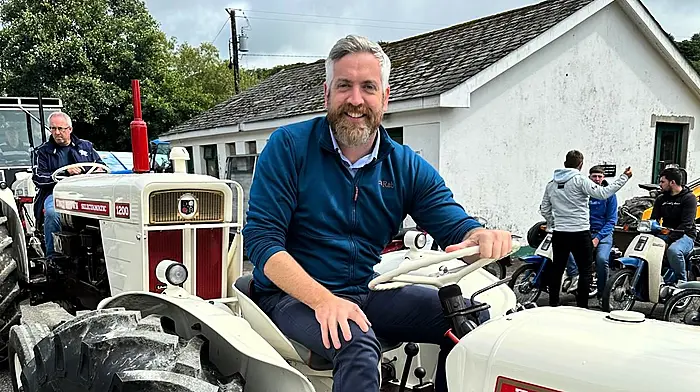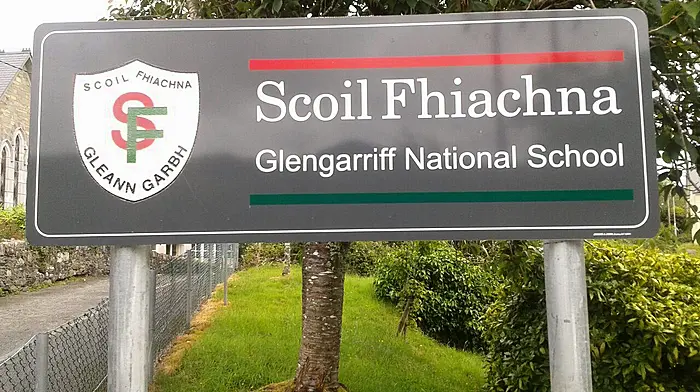IFA environment committee chairman John Murphy tells Tommy Moyles that concentrating on improvements, not targets, is the way forward.
This article was featured in our West Cork Farming magazine – you can read the full magazine here!
Pointing out the wrongs of other entities when it comes to water pollution has been a common theme at farmer meetings over the last few years when the issue of nitrates derogation is raised.
While acknowledging this, IFA environment committee chairman, John Murphy, said that farmers need to focus on what they can control.
‘Theres a variety of pressures on water from sectors outside of agriculture but it’s up to them to find their own solutions,’ he said.
At the Clonakilty IFA dairy meeting in November last year, he urged farmers to focus on what they could do to improve water quality and that this would help in retaining the nitrates derogation. His views haven’t changed in that time.
‘We need to concentrate on improvements, not the targets. If we do that water quality will constantly be improving and it will increase our chances of retaining the nitrates derogation. My attitude to this is, if we can hold onto what we have, science and the progression of time will help us dramatically.’
In his role as environmental committee chair, he is someone who would rather spend his time focusing on positive actions where results can be achieved. He caught some people off guard in November when, after hearing a number of comments regarding uncertainty over the long-term future of the nitrates derogation, he said we needed to knock on the head the expectation of having a longer term for the Nitrates Action Plans.
‘We’re in the final year of the current (fifth) Nitrates Action Plan (NAP) and there’s four for the next one, if it is agreed. Reducing losses of nitrogen and phosphorus to water was key to this and an increase in manpower in terms of advisers on the ground to help farmers plan and manage their resources better are essential.’
Assertive and positive, rather than authoritarian he said:
‘The most important thing here is the mindset. We can talk around in circles as to why we won’t do this and won’t do that but you have to look on the more positive side of it. If people dwell on the negative there’ll be nothing done.’
The Dripsey-based dairy farmer noted that it isn’t just a a dairy issue either.
‘We have to get all farmers regardless of enterprise to buy into it. Whether you are in tillage, dry stock, pigs or poultry a lot of this is good practice for your own farm. A nutrient management plan can save you money and if you have enough slurry storage, you’re more inclined to make better decisions around the use of nutrients on your farm. Matching the spreading of these, be it in artificial or in organic form, to when there are good grass and crop growing conditions, will help reduce the level of excess nutrients that can find their way into water courses and ground water.’
With increasing fertiliser costs, the introduction of the fertiliser register and revised upper fertiliser limits he said that farmers need to view slurry differently.
‘For too long slurry was treated as a nuisance but it is a valuable resource. The lion’s share needs to get out in the main growing season. With changes to the amount of fertiliser you can use, you will be short of nutrients on your farm if you misuse slurry.’
Rain began in late summer of 2023 resulting in the earlier housing of livestock and this, coupled with difficult weather conditions into last April resulted in a lot of pressure being put on yards especially those without sufficient slurry storage.
‘There’s less pressure this year as the autumn was good and cattle were housed later and that helped but there will always be times, especially with the weather when things go against you.’
New measures were announced at the beginning of March 2025.
Among them are the reduction of the upper organic nitrogen limit of 220kg N/ha across the country by December 2025, reduced fertiliser limits and the prohibiting of spreading straight urea in 2026.
Nutrient excretion rates for calves have also been revised and the rate for the first 90 days.
The revised nutrient excretion rates for calves now stands at 1kg of nitrogen (n) while animals aged from 91 days to 12 months of age now have an excretion rate of 20kg of n in that time.
Bovines aged one to two years of age will also see a change from the current value of 57kg n/year.
Based on the latest Teagasc research, female bovines will have a value of 55kg n/year and 61kg n/year for males.
Regarding these, he said:
‘We’re pleased with some of them, particularly the calf one. That will help have a stronger calf for sale and ease pressure on farms at a busy time of the year. With some others measures but particularly the banning of straight urea, we’d be concerned on that. There were a lot of concerns with protected urea last year and there is a lot of work to be done convincing farmers on that. Hopefully if there is a normal weather year this year it will boost it.’
He appealed to farmers to see what the water quality and the pressures are in their area, see whether their land is free draining or whether it retains moisture or if it’s overflow or down into ground water.
‘If you engage with it at all and you’d be surprised at what kind of help is out there and small tweaks to your business will make a huge difference.
I think a lot of people don’t get the basics and you still get the narrative oh we had a great December why couldn’t we spread slurry.
‘We have to move away from that and educate people on why on an average basis we can’t be spreading slurry in the dormant period. We just can’t. It’s a non-runner and we can’t just be putting on excess nitrogen in the autumn. All the science is telling us that all the nitrates in the water in spring is coming from all the surplus in the autumn, when the growing season stops and the water table rises and it carries away the nitrogen.’
This article was featured in our West Cork Farming magazine – you can read the full magazine here!










